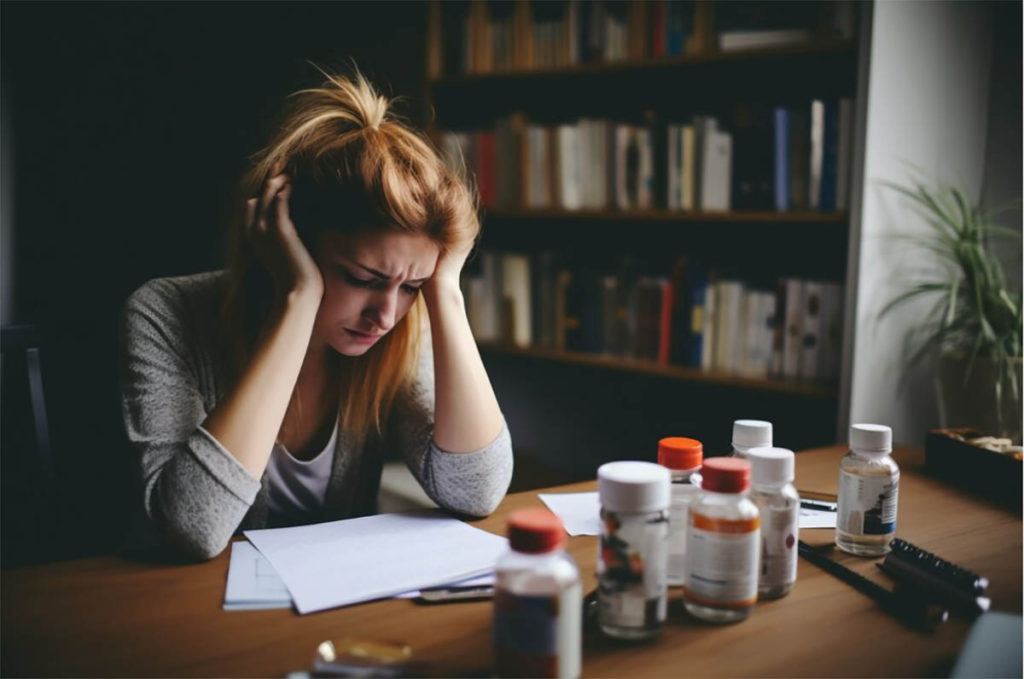
Do you ever feel worn out even after a full night’s sleep? If you have depression, this tiredness can happen almost every day. You might struggle to get out of bed, find it hard to focus on simple tasks or feel drained by midday. These feelings can be confusing. After all, many people think of depression as just feeling sad or hopeless. Yet, fatigue, extreme tiredness, or lack of energy are also big parts.
There is more to depression than sadness. It affects both the mind and the body. People with depression often report feeling physically unwell. This includes problems like headaches, changes in appetite, or muscle aches. But one of the most common complaints is deep, persistent tiredness. In this article, we will explore why that happens and how to find relief.
What is Depression?
Depression is a mood disorder that affects how you think, feel, and act. It is more than a brief spell of sadness. Instead, it can last weeks, months, or even years. Doctors often call it Major Depressive Disorder, but it goes by other names too, like clinical depression. Some people have milder forms, like dysthymia, which can still cause a lot of distress over time.
Depression is common all around the world. It affects people of all ages, backgrounds, and lifestyles. According to some sources, hundreds of millions of people experience depression every year. This means if you feel depressed or know someone who is, you are not alone.
Typical signs of depression include:
- Feeling sad, empty, or hopeless
- Losing interest in activities you once enjoyed
- Experiencing changes in sleep (trouble sleeping or sleeping too much)
- Feeling guilty or worthless
- Having trouble concentrating
- Thinking about death or suicide
Many people also note having constant fatigue.
The Science Behind Depression-Induced Fatigue
Neurotransmitters and Hormones
Your body runs on various chemicals called neurotransmitters. These include serotonin and dopamine, which help control mood, motivation, and energy. When you have depression, these chemicals can become imbalanced. Low levels of certain neurotransmitters may result in feeling tired. Also, the stress hormone cortisol can stay high when you are depressed, which may disrupt normal sleep and energy patterns.
Sleep Disruption Cycle
Depression often upsets your sleep routine. You might have trouble falling asleep or staying asleep, leading to insomnia. On the flip side, some people with depression sleep too much. Both of these issues can cause energy levels to drop during the day. Lack of good sleep creates a cycle: you feel tired, which makes you less active, and being less active can worsen depression.
Brain Fog and Constant Thinking
Fatigue also comes from what is sometimes called “brain fog.” When you are depressed, you may find yourself thinking negative thoughts over and over again. This constant mental chatter can make you feel worn out. It becomes harder to solve problems, remember details, or stay focused. This mental drain also shows up as physical tiredness.
Physical and Emotional Contributors to Tiredness
Physical Symptoms
Depression can make your body hurt. Some people have headaches, muscle aches, or other forms of pain. When your body is in pain, it uses more energy to cope. You might also feel like your movements have slowed down. Even simple tasks, like walking up stairs or cooking a meal, can wear you out faster than before.
Emotional Strain
Living with depression often means battling powerful emotions like guilt, worry, or shame. You might feel afraid of letting others down or embarrassed about your feelings. These emotions can lead to stress, which in turn increases fatigue. Stress triggers the release of hormones that prepare your body to fight or flee. Over time, being in this constant “alert” state is exhausting.
Lifestyle Factors
When you feel depressed, everyday habits can change. You might skip meals or reach for unhealthy foods because cooking a balanced meal seems hard. Exercise might become rare because leaving the house or moving your body feels too big a task. You may also stay up late watching TV or scrolling on your phone, which disrupts sleep. All these factors can worsen tiredness and make a recovery from depression more challenging.
How to Manage Depression-Related Fatigue
Feeling tired because of depression can be frustrating, but there are ways to manage and even reduce this fatigue. Here are a few strategies:
Medical and Therapeutic Interventions
- Therapy: Talking with a mental health professional can help you handle negative thoughts and learn coping skills. Cognitive Behavioral Therapy (CBT), for example, teaches you to change harmful thought patterns. This can free up mental energy and reduce stress.
- Medication: Sometimes, doctors may suggest antidepressants. These medicines can help balance the chemicals in your brain. It might take time to find the right medication, and you should always talk with your healthcare provider about any side effects.
Lifestyle Adjustments
- Exercise & Nutrition: Try light to moderate exercise if you can. Even a short walk can lift your mood and improve energy. A balanced diet with fruits, vegetables, lean protein, and whole grains may also help your body feel better.
- Sleep Hygiene: Set a regular bedtime and wake-up time. Keep your bedroom cool and dark, and avoid screens right before bed. If you find it hard to sleep, try reading a book or listening to calming music instead of scrolling on your phone.
- Stress-Reduction Techniques: Meditation, yoga, or deep breathing can lower stress levels. When stress is reduced, your body can relax, and you may feel less tired.
Social Support
- Peer Support Groups: Joining a group in person or online can help you feel less alone. Hearing others’ experiences may give you new ideas on how to cope with fatigue.
- Friends and Family: If you have loved ones nearby, ask them for help. Even small things, like talking about your day or getting help with chores can ease tiredness.
When to Seek Professional Help
If your tiredness makes it hard to do daily tasks, consider reaching out for help. Depression is serious, and it does not always go away on its own. Talk to a doctor or mental health professional if you notice signs such as:
- Suicidal thoughts or plans
- Constant trouble sleeping or staying awake
- Complete loss of motivation to do normal tasks
These are strong signals that more support is needed. There is no shame in asking for help. Early depression treatment can prevent it from getting worse over time, and it can also lower your risk of a depression relapse.
Conclusion
Depression is more than just feeling sad. It can affect sleep, energy, and even the chemicals in your brain. These changes may leave you feeling tired all the time. But there is hope. You can fight back with the right blend of therapy, medication, lifestyle changes, and support from loved ones. You do not have to accept constant fatigue as your “new normal.”
Remember, professional help is there for you. The path to feeling better might take patience and work, but it is possible. Take the first step by talking to someone you trust or seeking medical advice today.
Mariam holds an MS in Sociology with a specialization in Medical Sociology and Social Psychology. With a strong academic background and extensive research work in both fields, she brings depth and clarity to complex topics. Her writing explores the intersection of society, health, and the human mind, making academic ideas easy to grasp and relevant to everyday life.


